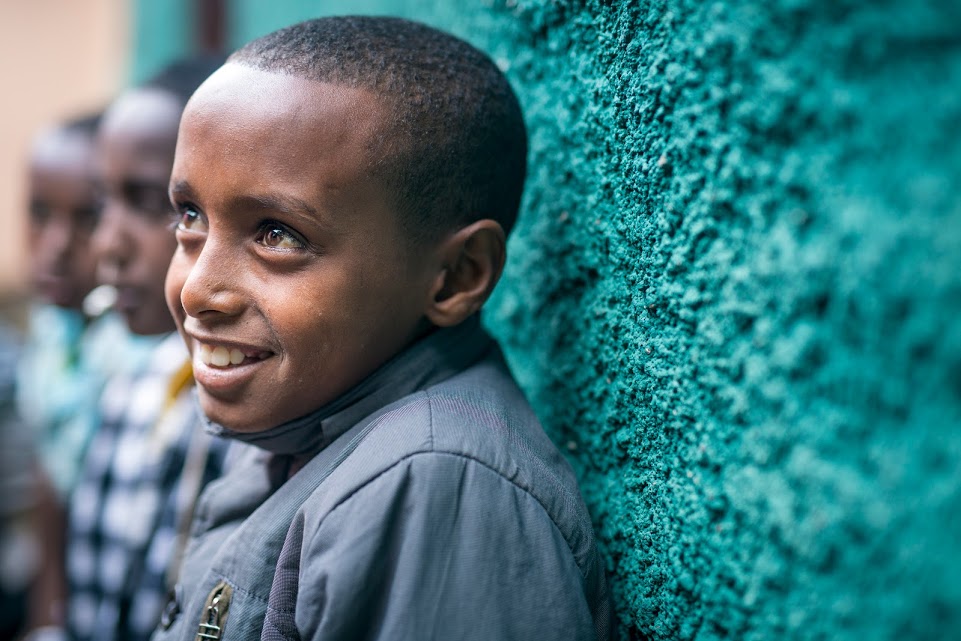The 2019 Nobel Peace Prize has been awarded to Dr. Abiy Ahmed Ali, the Ethiopian Prime Minister. Mr. Abiy was born in Ethiopia in 1976 to a Muslim father and Christian mother. He has several degrees, including a doctorate degree in peace and security issues and a master’s degree in transformational leadership. As a teenager, he joined the armed struggle against the former Derg regime – a Communist military that ruled Ethiopia from 1974 to 1987. He later served as a United Nations peacekeeper in Rwanda. He joined politics in 2010, becoming a member of the Oromo People’s Democratic Organization, before being elected as a member of parliament. He became Prime Minister of the Federal Democratic Republic of Ethiopia since April 2, 2018.
The Norwegian Nobel Committee has decided to award the Nobel Peace Prize for Abiy Ahmed for his efforts to achieve peace and international cooperation, particularly for his decisive initiative to resolve the border conflict with neighboring Eritrea. The 20-year conflict between Ethiopia and Eritrea over disputed border territory came at a huge financial and humanitarian cost for both countries. When Abiy Ahmed became Prime Minister in April 2018, he made it clear that he wished to resume peace talks with Eritrea. In close cooperation with Isaias Afwerki, the President of Eritrea, Abiy Ahmed worked out the principles of a peace agreement to end the long “no peace, no war” stalemate between the two countries. These principles are set out in the declarations that Prime Minister Abiy and President Afwerki signed in Asmara and Jeddah last July and September.
Prime Minister Abiy has engaged in other peace and reconciliation processes in East and Northeast Africa. In September 2018 he and his government contributed actively to the normalization of diplomatic relations between Eritrea and Djibouti after many years of political hostility. Additionally, Abiy Ahmed has sought to mediate between Kenya and Somalia in their protracted conflict over rights to a disputed marine area. As the United Nations Secretary General Antonio Guterres said, winds of hope are blowing ever stronger across Africa and Prime Minister Abiy Ahmed is one of the main reasons.

In Ethiopia, even if much work remains, Abiy Ahmed has initiated important reforms that give many citizens hope for a better life and a brighter future. He spent his first 100 days as Prime Minister lifting the country’s state of emergency; granting amnesty to thousands of political prisoners, and releasing the country’s political prisoners, denouncing their torture; freeing jailed journalists and discontinuing media censorship; legalizing outlawed opposition groups; dismissing military and civilian leaders who were suspected of corruption; and significantly increasing the influence of women in Ethiopian political and community life. He has also pledged to strengthen democracy by holding free and fair elections. He met the political opposition and civil society to discuss reform and invited previously exiled political parties to return to Ethiopia. He also embarked on major institutional reforms, including in the security and justice sectors.
For the first time, Ethiopia had no journalists in prison. People expressed themselves freely on social media, and he announced that Ethiopia would hold free and fair elections in 2020. The country has one of the world’s few “gender-balanced” Cabinets and a female president, a rarity in Africa. The new prime minister also announced the opening-up of Ethiopia’s tightly controlled economy, saying private investment would be welcome in major state-owned sectors.

Ethiopia is Africa’s second most populous country and has East Africa’s largest economy. A peaceful, stable and successful Ethiopia will have many positive side-effects, and will help to strengthen fraternity among nations and peoples in the region. With the provisions of Alfred Nobel’s will firmly in mind, the Norwegian Nobel Committee sees Abiy Ahmed as the person who in the preceding year has done the most to deserve the Nobel Peace Prize for 2019.
There is a lot achieved already in reforming Ethiopia to a democracy but there’s also a long way to go. Even if much work remains, Abiy Ahmed has initiated important reforms that give many citizens hope for a better life and a brighter future. The award has a great meaning not only for Abiy and Ethiopia, but also for Africa. The prize would bring even more positive changes for the country of Ethiopia and in the region. It is believed that the Nobel prize would push and motivate Ethiopians to tackle the challenges that threaten to reverse the gains made so far. The prize would also encourage the young generation in Ethiopia to work hard and to stretch forward to contribute in the peace-making process and overall development of the country. It would also help the children of Ethiopia to think out of the box and face the challenges and obstacles that hinder them from the vision they have in mind.
________________________________________________________________________
Learn about HopeChest’s work in Ethiopia.






